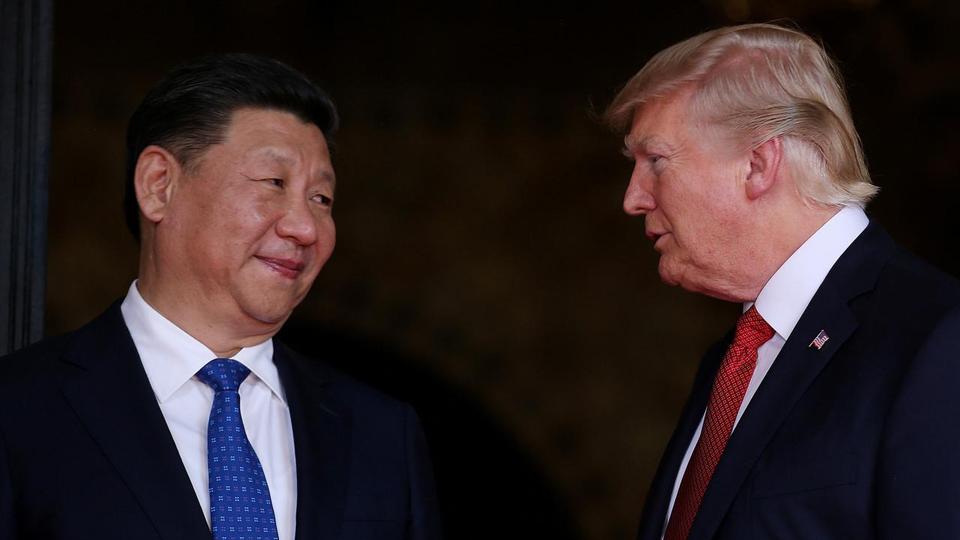Trump ignites trade war with China
US announces a 25 percent tariff on up to $50 billion in Chinese goods to take effect on July 6. In reply, China spells out details to impose tariffs on 545 US exports.
 The US tariffs against China risk igniting a damaging trade war involving the world’s two biggest economies. (Reuters Archive)
The US tariffs against China risk igniting a damaging trade war involving the world’s two biggest economies. (Reuters Archive)
President Donald Trump brought the world’s two biggest economies to the brink of a trade war on Friday by announcing a 25 percent tariff on up to $50 billion in Chinese imports to take effect July 6.
Beijing quickly responded that it would retaliate with penalties of the same scale on American goods — and it spelled out details to impose tariffs on 545 US exports, including farm products, autos and seafood, according to the Xinhua state news agency.
In announcing the US tariffs, Trump said he was fulfilling a campaign pledge to crack down on what he contends are China’s unfair trade practices and its efforts to undermine US technology and intellectual property.
“We have the great brain power in Silicon Valley, and China and others steal those secrets,” Trump said.
”We’re going to protect those secrets. Those are crown jewels for this country.”
TRT World’s Ediz Tiyansan has more.
The prospect of a US-China trade war weighed on financial markets on Friday.
The Dow Jones industrial average was down more than 220 points in mid-afternoon trading before recovering somewhat to finish down 84 points. Other stock averages also declined.
https://twitter.com/krassenstein/status/1007603745239203840
Over a thousand products targeted
The US tariffs will cover 1,102 Chinese product lines worth about $50 billion a year.
Included are 818 items, worth $34 billion a year, from a list of 1,333 the administration had released in April.
After receiving public comment, the US removed 515 product lines from the list, including TVs and some pharmaceuticals, according to a senior administration official who briefed reporters on condition of anonymity.
The administration is targeting an additional 284 Chinese products, which it says benefit from Beijing’s strong-armed industrial policies, worth $16 billion a year.
But it won’t impose those tariffs until it gathers public comments. US companies that rely on the targeted imports — and can’t find substitutes — can apply for exemptions from the tariffs.
The tariffs target mainly Chinese industrial machinery, aerospace parts and communications technology, while sparing such consumer goods as smartphones, TVs, toys and clothes that Americans purchase by the truckload from China.
Farmers appear to be some of the hardest hit by Trump's tariffs…
1) Trump's own tariffs are on a lot of farm equipment (see below)
2) China plans to retaliate on a lot of US ag productshttps://t.co/VJi3LWQvhQ #trade pic.twitter.com/SIZqbJRf59— Heather Long (@byHeatherLong) June 15, 2018
‘China has to fight back’
“The Chinese side doesn’t want to fight a trade war, but facing the shortsightedness of the US side, China has to fight back strongly,” Beijing’s commerce ministry said.
“We will immediately introduce the same scale and equal taxation measures, and all economic and trade achievements reached by the two sides will be invalidated.”
A ministry statement gave no details of what US goods would be hit by Beijing’s retaliatory tariffs.
But China in April had announced possible targets, including light aircraft, orange juice, whiskey, beef and soybeans — an economically and politically important export from America’s heartland.
The longer-term concern, said Dan Basse of AgResource – an agricultural research and advisory firm – is that China will increasingly look to Argentina and Brazil and that the United States will lose market share.
Trump has already imposed tariffs on steel and aluminum imports from Canada, Mexico and European allies, sparking anger and retaliatory threats from some of America’s closest longtime allies.
But his proposed tariffs against China risk igniting a damaging trade war involving the world’s two biggest economies.
I support the #TheftTax imposed on #China by @realDonaldTrump 1000%. They are 211ing our innovations to establish technological dominance in key fields. We need to confront this now. It’s is almost too late to act so its now or never. https://t.co/HheGhXSklE
— Marco Rubio (@marcorubio) June 15, 2018










